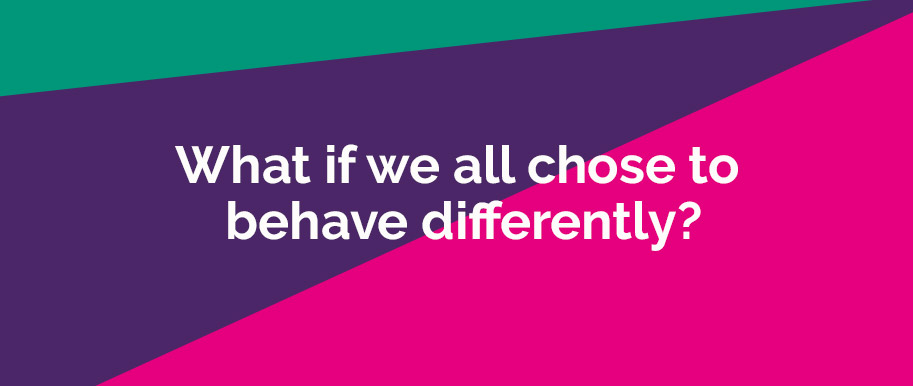How many times have you heard someone say that they just couldn’t help themselves, they were so annoyed they had to shout at someone, or they were too nervous to say anything at all? And how many times have these reactions been helpful or led to positive outcomes in the moment?
We believe that behaviours – from shouting, to complaining, to going quiet in awkward situations – are choices. Anybody can choose to behave in any way that they want in any situation and therefore take control of the impact that they have on the people around them. And that being able to do this can lead to much more effective relationships, more productive teams and therefore better performing organisations.
However, for lots of people this is a difficult concept to grasp – they tend to believe that they are controlled by their emotions and behaviours rather than being able to make conscious choices about how they let their emotions impact on their behaviours.
So how do you convince someone otherwise?
It’s about helping people to become more self-aware. Through exploring their own emotions and deepening their understanding of what reactions and responses they experience in different situations, people can start to understand how their emotions impact on their behaviours. And then they can then start to develop their skills in the areas where they need it the most. So, if somebody is aware that they always raise their voice when they get frustrated, and they can see the impact that this has on the people around them, they are more likely to recognise the emotions as they happen and stop themselves before behaving in an unhelpful manner.
It’s about helping people to stop, think and respond rather than react. And it’s also about helping people to take ownership for their behaviours and responses – not saying “you made me feel X, so I did Y”, but rather “I chose to do X in response to a feeling I had.”
At Farscape we believe that everyone is in control of how they behave – and that too many people deny that responsibility because it is easier not to. But it’s so much better for everybody when they do.
